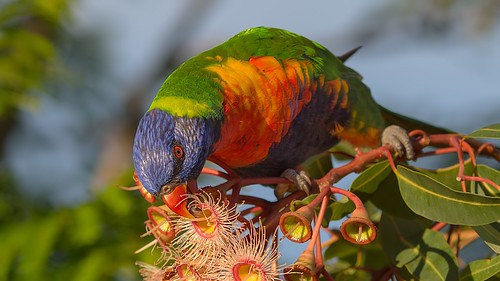In this article, we will explore the question, “Can birds eat gum?” Birds are fascinating creatures that often surprise us with their eating habits. However, when it comes to gum, there are certain considerations to keep in mind. Let’s delve into the topic and understand whether birds can safely consume gum or if it poses any risks to their health.
Can Birds Safely Consume Gum?
Birds should not be given gum to eat. Gum is not a suitable food for birds and can be harmful to their health. While birds may occasionally come across gum in their natural environment, it is important to understand the potential dangers it poses.

The Risks of Birds Consuming Gum
-
Choking Hazard: Gum can be sticky and easily get stuck in a bird’s throat, leading to choking. Birds have delicate respiratory systems, and any obstruction can be life-threatening.
-
Digestive Issues: Gum is not easily digestible for birds. If ingested, it can cause blockages in their digestive tract, leading to discomfort, pain, and potential complications.
-
Toxic Ingredients: Many gums contain artificial sweeteners, such as xylitol, which can be toxic to birds. Ingesting gum with such ingredients can have severe consequences on their health.
Natural Diet of Birds
To better understand why gum is not suitable for birds, let’s take a closer look at their natural diet. Birds primarily feed on seeds, fruits, insects, and nectar. Their digestive systems are adapted to process these types of foods efficiently. Gum, on the other hand, does not provide any nutritional value and can disrupt their natural feeding patterns.
Alternatives to Gum for Birds
If you enjoy feeding birds and want to provide them with treats, there are several safe alternatives to gum. Here are a few options:
-
Birdseed Mixes: High-quality birdseed mixes are readily available and provide birds with essential nutrients. Ensure the mix is suitable for the specific bird species you are feeding.
-
Fruits and Berries: Birds enjoy a variety of fruits and berries, such as apples, grapes, and blueberries. Cut them into small, bird-friendly pieces and place them in a feeder or on a bird table.
-
Mealworms: Mealworms are a great source of protein for birds. They can be purchased from pet stores or online and are a favorite treat for many bird species.
Conclusion
In conclusion, birds should not be given gum to eat. Gum poses various risks to their health, including choking hazards, digestive issues, and potential toxicity. It is important to provide birds with a diet that aligns with their natural feeding habits, such as seeds, fruits, insects, and nectar. By offering safe and nutritious alternatives, we can ensure the well-being of our feathered friends.
FAQs
1. Can birds digest gum?
No, birds cannot easily digest gum. Gum can cause blockages in their digestive tract, leading to discomfort and potential complications.
2. Is gum toxic to birds?
Some gums contain artificial sweeteners, such as xylitol, which can be toxic to birds. It is best to avoid giving gum to birds.
3. What should I feed birds instead of gum?
Birds should be provided with a diet that aligns with their natural feeding habits. This includes seeds, fruits, insects, and nectar. Birdseed mixes, fruits, berries, and mealworms are safe alternatives to gum.
4. Can birds choke on gum?
Yes, gum can be sticky and easily get stuck in a bird’s throat, leading to choking. Birds have delicate respiratory systems, and any obstruction can be life-threatening.
5. Are there any risks in giving gum to birds occasionally?
Even occasional consumption of gum can pose risks to birds. It is best to avoid giving them gum altogether to ensure their well-being.

